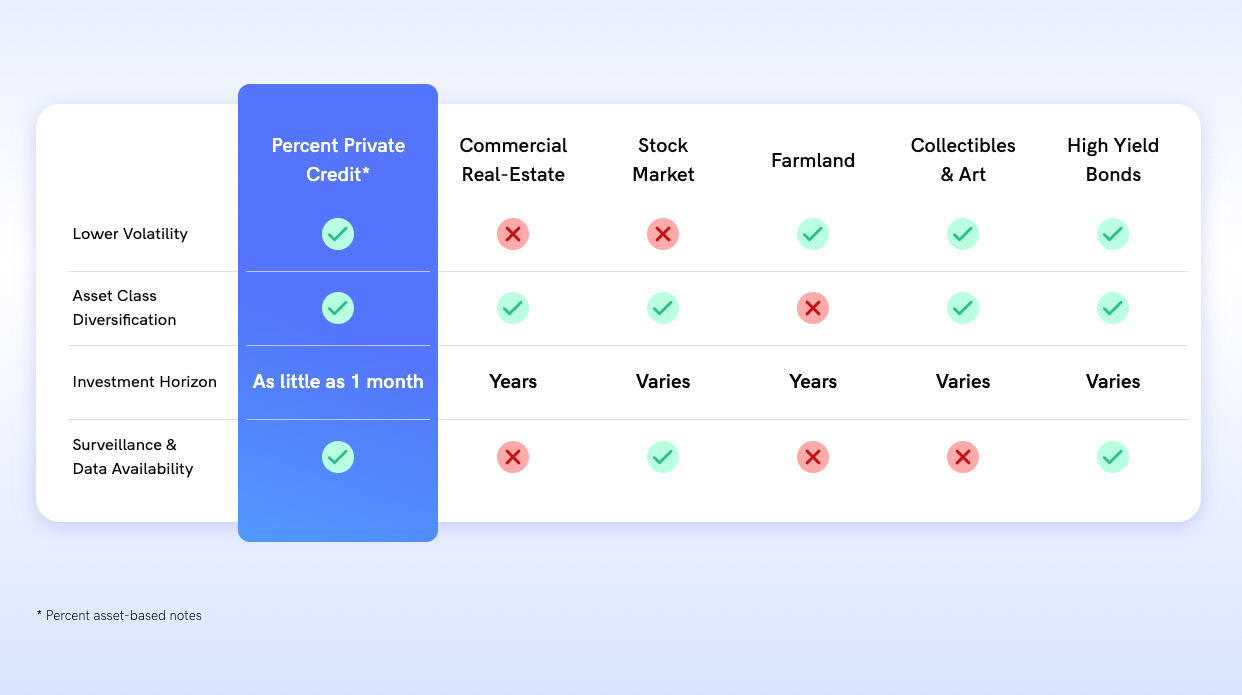All Categories
Featured
Table of Contents
:max_bytes(150000):strip_icc()/Methodology-recirc-v13-da5a3e13175c467d85f3d29cf9f418c5.png)
As certified investors, people or entities might take part in private financial investments that are not registered with the SEC. These investors are assumed to have the economic sophistication and experience required to examine and buy risky financial investment opportunities hard to reach to non-accredited retail financiers. Here are a couple of to think about. In April 2023, Congressman Mike Flooding presented H.R.
For now, investors have to follow by the term's existing meaning. There is no formal procedure or government qualification to end up being an accredited financier, an individual might self-certify as an approved financier under existing guidelines if they made even more than $200,000 (or $300,000 with a partner) in each of the past 2 years and expect the same for the existing year.
People with an energetic Series 7, 65, or 82 certificate are likewise taken into consideration to be approved financiers. Entities such as corporations, collaborations, and trusts can also attain accredited investor status if their financial investments are valued at over $5 million (Accredited Investor Real Estate Partnerships). As certified financiers, individuals or entities might participate in exclusive investments that are not signed up with the SEC.
What is a simple explanation of Commercial Property Investments For Accredited Investors?
Right here are a few to take into consideration. Private Equity (PE) funds have shown remarkable development in the last few years, relatively undeterred by macroeconomic obstacles. In the third quarter of 2023, PE offer quantity exceeded $100 billion, about on par with bargain task in Q3 of the previous. PE companies swimming pool funding from accredited and institutional investors to obtain controlling rate of interests in fully grown private business.
Along with capital, angel capitalists bring their specialist networks, support, and competence to the startups they back, with the expectation of endeavor capital-like returns if business takes off. According to the Center for Endeavor Research study, the average angel investment amount in 2022 was roughly $350,000, with capitalists getting an average equity stake of over 9%.
That stated, the advent of on-line private credit scores platforms and niche sponsors has actually made the asset class available to specific recognized capitalists. Today, financiers with as low as $500 to spend can make the most of asset-based exclusive credit rating possibilities, which use IRRs of as much as 12%. Regardless of the rise of e-commerce, physical grocery shops still account for over 80% of grocery store sales in the USA, making themand especially the real estate they run out oflucrative financial investments for recognized investors.
In contrast, unanchored strip facilities and neighborhood centers, the next two most heavily transacted kinds of realty, tape-recorded $2.6 billion and $1.7 billion in purchases, respectively, over the exact same duration. But what are grocery store-anchored facilities? Suv shopping center, electrical outlet malls, and other retail centers that include a major grocery store as the location's major lessee normally fall under this category, although shopping centers with enclosed walkways do not.
Certified financiers can invest in these spaces by partnering with real estate private equity (REPE) funds. Minimum financial investments typically begin at $50,000, while complete (levered) returns range from 12% to 18%.
What is a simple explanation of Real Estate For Accredited Investors?
Over the last decade, art has gained typical yearly returns of 14%, trouncing the S&P 500's 10.15%. The marketplace for art is also increasing. In 2022, the international art market grew by 3% to $67.8 billion. By the end of the years, this number is anticipated to come close to $100 billion.
Capitalists can currently possess varied personal art funds or acquisition art on a fractional basis. These options feature financial investment minimums of $10,000 and supply internet annualized returns of over 12%. Equity capital (VC) remains to be just one of the fastest-growing property courses on the planet. Today, VC funds flaunt even more than $2 trillion in AUM and have actually released more than $1 trillion into venture-backed start-ups considering that 2018including $29.8 billion in Q3 2023 alone.

If you've seen advertisements for actual estate investments, or any various other kind of investing, you might have seen the term "approved" prior to. Some financial investment possibilities will just be for "certified" investors which are 506(c) offerings. This leads some individuals to think that they can not spend in actual estate when they can (after all, "recognized" sounds like something you make or use for).
What is Exclusive Real Estate Crowdfunding Platforms For Accredited Investors?
Possibly there's a restaurant down the road that you want to invest in to get a 25% equity risk. That restaurant might obtain financial investments from recognized capitalists yet not nonaccredited ones.

With that history in mind, as you might think of, when someone obtains investors in a new home structure, they must typically be accredited. Many of them are open to nonaccredited financiers.
Just how is that a nonaccredited realty investing option? The response hinges on a subtlety of the legislation. A nonaccredited real estate investment chance is a 506(b) deal called after the section of the statute that accredits it. Syndications under this regulation can not openly market their safeties, so it is called for that the sponsors (people putting the submission with each other) have a preexisting relationship with the financiers in the deal.
Maybe one of the most straightforward and user-friendly financial investment chance for somebody who does not have certification is buying and holding rental residential property. You don't need any type of special designation to acquire the apartment or home down the road and rent it out to renters. Obviously, that's a good point because buying and holding rentals is a wonderful way to build your total assets! Usually, property worths appreciate, and you can develop a steady monthly revenue stream! The only downside is that you get on the hook for anything that goes incorrect! And, you require to handle all your occupants' inquiries even at 3am or work with a property manager to do so (which can become costly, depending upon the area). Acquiring and holding rental residential or commercial properties is maybe the most simple of all the unaccredited property spending alternatives! You've certainly seen or become aware of all the turning programs on TV.
Component of the factor these shows are throughout is that turning does work mainly. You can discover homes inexpensively, remodel them, and sell them for a tidy earnings if you understand where to look. If you go behind the scenes on these shows, you'll typically understand that these financiers do a lot of the job on their own.
The concept behind this technique is to maintain doing the complying with action in sequence: Get a single-family home or condominium that needs some work. Rehab it to make it both rentable and increase the home's value. Rent it out. Refinance the building to draw out as much of your preliminary capital as feasible.
What is a simple explanation of Commercial Real Estate For Accredited Investors?
What happens if you do not have that saved up yet however still want to purchase property? That's where REITs are powerful. Real Estate Investing for Accredited Investors. REITs are companies that concentrate on realty and profession on standard stock exchanges. You can buy them in your 401(k) or with any conventional brokerage account. These firms typically buy and run shopping malls, shopping mall, apartment structures, and various other large-scale realty financial investments.
Latest Posts
Tax Land Sales
Excess Funds
Government Real Estate Tax Auctions